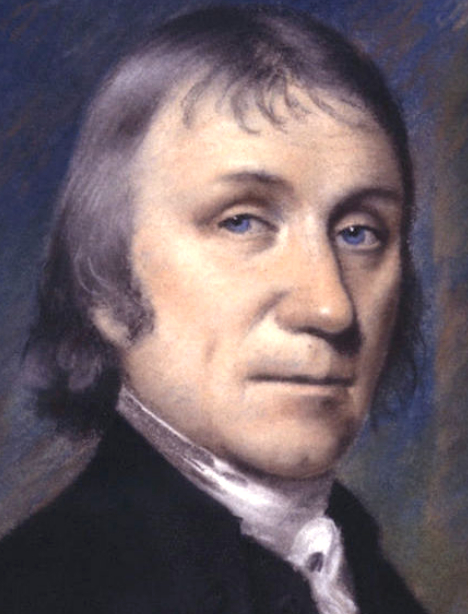March 13
Joseph Priestley

On this date (under the Old Style calendar) in 1733, chemist and discoverer of oxygen Joseph Priestley was born in Fairhead, England, near Leeds, the oldest of six children. Destined for the ministry, Priestley realized he rejected much of Calvinism and decided to attend a Dissenting seminary, Daventry Academy. He worked as a minister while conducting scientific experiments and then secured a position at the Dissenting Academy, Warrington. He was eventually ordained and became an early founder of Unitarianism in England, at a time when Dissenters could be deprived of their citizenship and Unitarianism was not lawful.
He produced carbonated water and isolated eight gases in the air, including oxygen, and is considered to have laid the foundation for the science of chemistry. Priestley wrote The History and Present State of Electricity (1767) at the encouragement of his colleague Benjamin Franklin.
Priestley’s History of the Corruptions of Christianity (1782) was burned and reviled for its rejection of the Trinity, predestination and divine revelation. In it he averred that a pure form of Christianity had been corrupted. This was followed by History of Early Opinions Concerning Jesus Christ (1786). A General History of the Christian Church to the Fall of the Western Empire was finished in four volumes by 1803.
A defender of the French Revolution, Priestley lost his laboratory and home in Birmingham when they were stormed and burned down by mobs. His membership in the Royal Society was also withdrawn and he was burned in effigy. Priestley and his family emigrated to the U.S. in 1794 with hopes of setting up a model community but settled for building a house with a built-in lab in Northumberland, Pa., where he died at age 70 in 1804.
After weathering so much personal criticism, Priestley was notorious among freethinkers for writing about Franklin: “It is much to be lamented that a man of Dr. Franklin’s general good character and great influence should have been an unbeliever in Christianity and also have done so much as he did to make others unbelievers.” Priestley helped found the first Unitarian church in the U.S. (D. 1804)
What does Priestley mean, by an unbeliever, when he applies it to you? How much did he unbelieve himself? Gibbon had it right when he denominated his Creed, ‘scanty.’ “
— John Adams, in a letter to Thomas Jefferson (18 July 1813), "The Works of John Adams, Second President of the United States, Vol.10" (1856)
